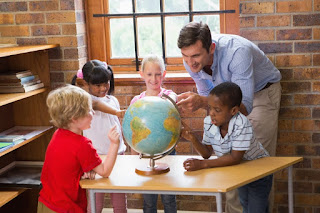An Australian native, Dennis Roeder is keenly aware of the difference electronic technology and Internet access makes to remote Australian students, and in the course of his career hopes to see charities like One Laptop per Child and the OLPC Foundation from MIT Media Lab accomplish their goal of giving Internet educational material access to all disadvantaged children.
Australian authorities may also investigate the possibilities of satellites like that of India, which has launched its communications satellite EDUSAT, able to provide educational material access to a much greater percentage of its nation’s population at reduced cost.
Dennis Roeder’s teaching career in Australia will likely strive to keep teacher/student ratios small, as studies have shown that primary students who attend small classes for at least 3 years are more likely to make it to their high school graduation.
Roeder is passionate about the importance of the early years of schooling, when basic interpersonal communication and literacy skills are the focus.
Roeder hopes to see each of his primary students develop their own unique potential and develop into their personal best. Roeder hopes to overcome the tendency toward criticism and blame during the struggles of the educational process, and to see these replaced with a gratitude for the efforts extended and a renewed determination to continue the learning challenge.
Dennis Roeder may use, among other teaching strategies, the theory of modalities of instruction, that individuals have preferred avenues of learning. The primary modalities are by observation, or sight, by listening or auditory, or through tactile experience, actually participating in the activity of creating or achieving.



